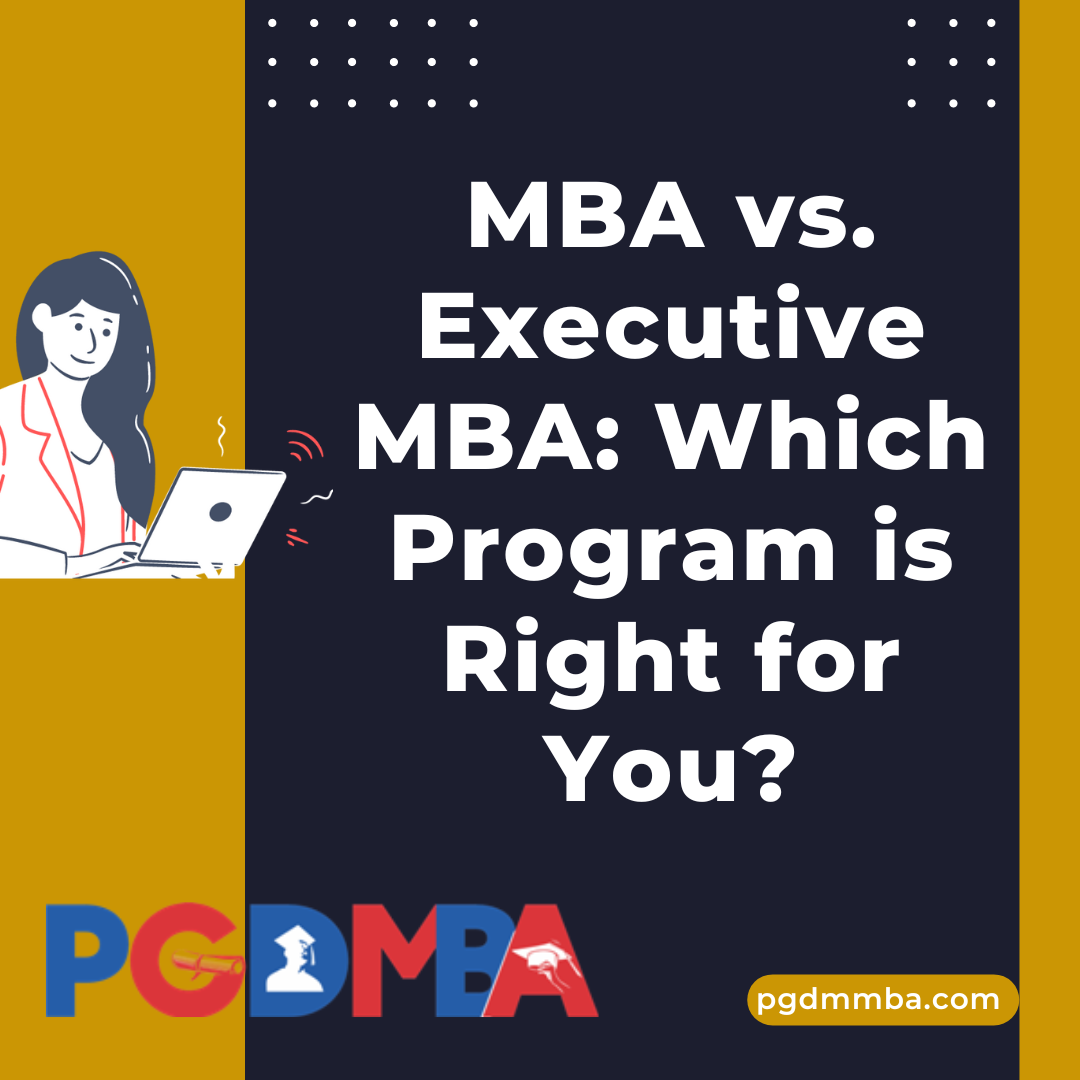Choosing the right graduate business program can be a crucial decision for individuals aspiring to enhance their career prospects and take on leadership roles. Two popular options to consider are the Master of Business Administration (MBA) and the Executive Master of Business Administration (Executive MBA or EMBA). While both programs offer valuable business education, they differ in several key aspects. In this article, we will explore the differences between MBA and Executive MBA programs, helping you determine which one is the right fit for your professional goals and personal circumstances.
- Understanding the MBA Program:
1.1 Overview of the MBA program:- Core curriculum and elective options.
- Full-time, part-time, and online formats.
- Focus on broader business education.
- Ideal for career switchers and early to mid-career professionals.
1.2 Benefits of pursuing an MBA:
- Broad-based business knowledge and skills.
- Networking opportunities.
- Career advancement potential.
- Flexibility in specialization and industry.
1.3 Factors to consider when choosing an MBA program:
- Time commitment and duration.
- Financial investment and return on investment (ROI).
- Location and access to internships and job opportunities.
- Personal circumstances and lifestyle.
- Exploring the Executive MBA Program:
2.1 Overview of the Executive MBA program:- Targeted towards experienced professionals and executives.
- Typically structured for working professionals.
- Emphasis on executive-level leadership and strategic thinking.
- Cohort-based learning and networking opportunities.
2.2 Benefits of pursuing an Executive MBA:
- Advancement in current organization.
- Building a robust executive network.
- Enhancing leadership and management skills.
- Immediate application of learning to professional role.
2.3 Factors to consider when choosing an Executive MBA program:
- Professional experience and eligibility criteria.
- Schedule and format (weekend, modular, or online).
- Employer sponsorship and support.
- Career goals and industry focus.
- Key Differences between MBA and Executive MBA Programs:
3.1 Program structure and format:- Full-time vs. part-time options.
- Cohort-based vs. diverse student body.
- Duration and intensity of the program.
3.2 Student profile and experience level:
- Early to mid-career professionals vs. experienced executives.
- Average work experience and professional background.
3.3 Curriculum focus and specialization:
- Broader business education vs. executive leadership development.
- Elective options and industry-specific concentrations.
3.4 Networking and alumni opportunities:
- Networking within the student cohort.
- Access to a diverse alumni network.
- Making the Right Decision:
4.1 Assessing your career goals and aspirations.
4.2 Evaluating your current experience and skill set.
4.3 Considering your personal circumstances and lifestyle.
4.4 Researching and visiting potential programs.
4.5 Seeking advice from professionals and alumni.
Conclusion: Deciding between an MBA and an Executive MBA program requires careful consideration of various factors. Understanding the differences in program structure, curriculum focus, student profile, and networking opportunities is crucial to making an informed choice. By assessing your career goals, experience level, and personal circumstances, you can determine whether an MBA or an Executive MBA program aligns better with your aspirations and helps you achieve long-term success in your professional journey. Remember, both programs offer immense value, and choosing the right fit will pave the way for a rewarding and fulfilling career in the business world.


